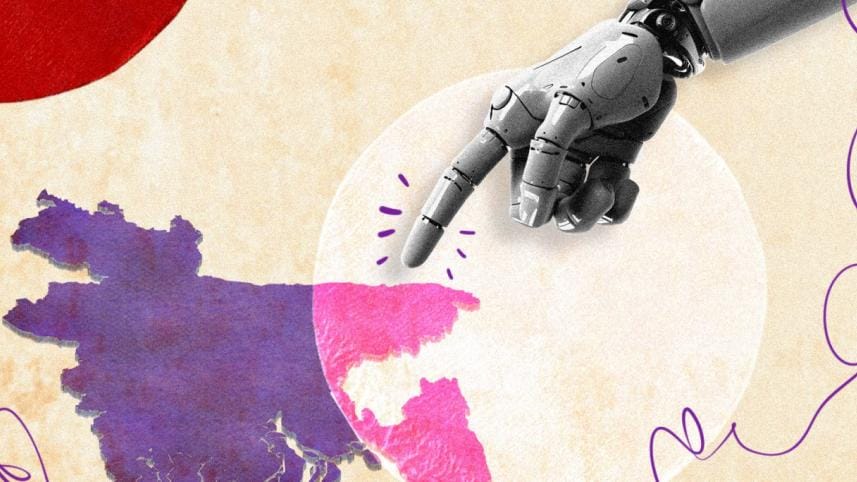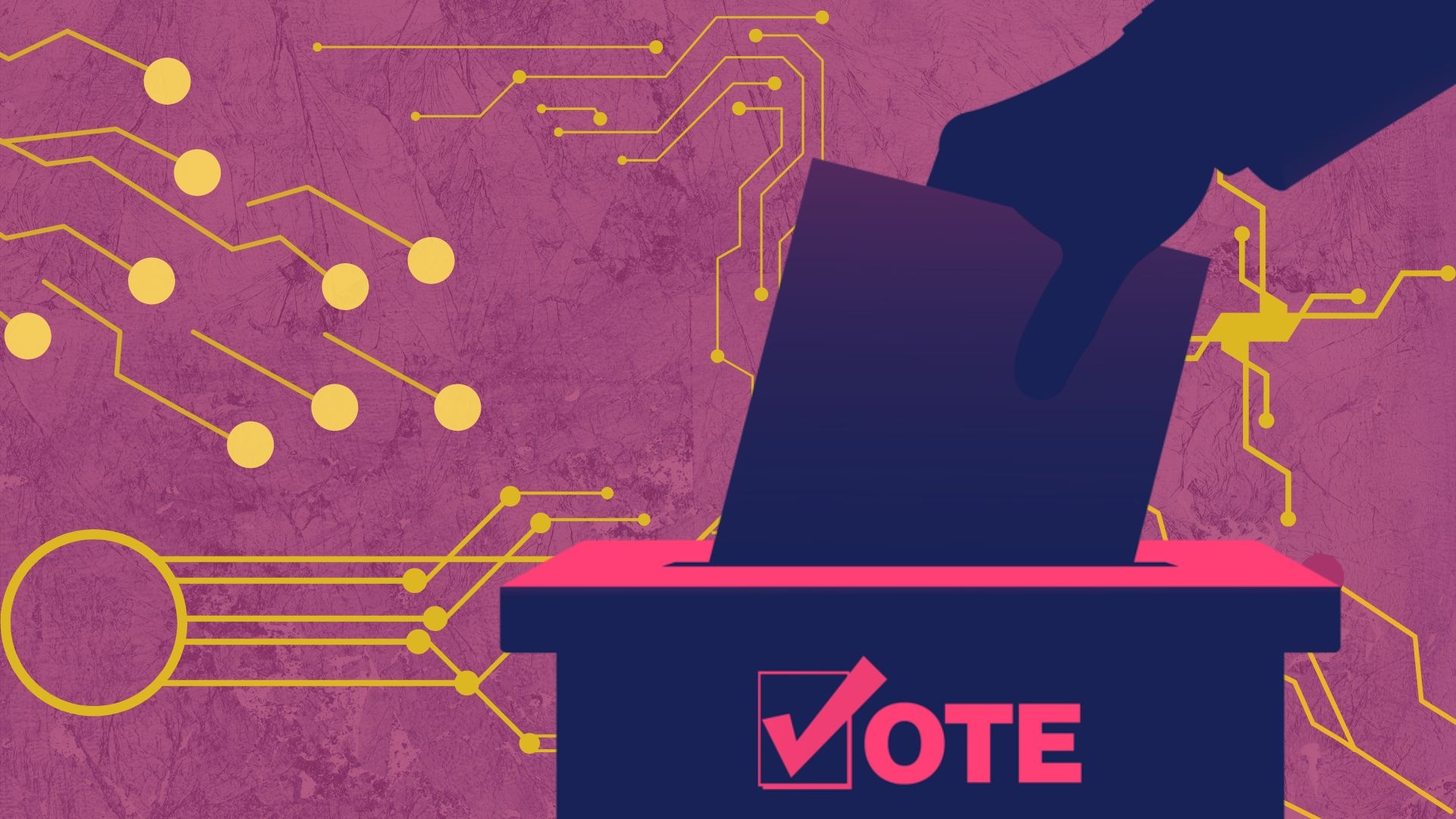Bangladesh must get the basics right to ride the AI wave

There's a proverb that says, "When the winds of change blow, some build walls, others build windmills." As the global storm of technological transformation swirls ever faster, driven by AI, climate imperatives, and geopolitics, Bangladesh must decide what it wants to build, not metaphorically, but quite literally: infrastructure, institutions, and interoperability. These are essential to unlocking better jobs, resilient growth, and national relevance in a digitally reordered world.
Notably, the recent years have brought a wave of infrastructure and legislative developments in the country. Grameenphone and Robi switched on 5G in September 2025. The SEA‑ME‑WE6 cable system has a total design capacity of approximately 126 terabytes per second (Tbps) and is expected to be ready for service in 2026. The national operator, Bangladesh Submarine Cables PLC, crossed 4 Tbps of live international bandwidth in August 2025. Rooftop solar is finally scaling, reaching around 245 MW in June 2025. Bain's 2025 technology analysis underlines the stakes: the world is reorganising around AI agents, dependable compute, and data sovereignty. The question is no longer "Will this affect us?" but "How prepared are we to shape it into progress?"
Consider power. Bain estimates that AI compute alone could drive global electricity demand towards 200 GW by 2030, requiring nearly $500 billion a year in new data-centre investment. Bangladesh is laying small but meaningful bricks. Yet, the challenge lies in scale and smart integration. Can our energy strategy explicitly link AI power needs to renewables, efficiency benchmarks, and transparent performance reports? That is how we can move from promises to green computing.
Connectivity is evolving, strengthening the backbone of our digital infrastructure. But resilience requires redundancy, not just speed. We must ask: when one cable breaks, does our national bandwidth collapse with it? Thus, Bangladesh's digital future also depends on backup routes.
Inside companies, AI has become a system that thinks ahead and works across programmes. Bain cautions against chasing isolated wins; the bigger value lies in rewiring entire workflows. Controlled trials show developers using GitHub Copilot completed tasks 55.8 percent faster. Yet faster coding matters only if it shortens delivery timelines or improves quality. Procurement must evolve too with specifying outcome-based KPIs, such as time-to-cash and first-pass yield, and requiring open agent interfaces so that vendors can compete within the same workflow.
Then comes trust. The Cyber Security Ordinance, 2025, has been gazetted, and the draft Personal Data Protection Ordinance (PDPO) 2025 has been approved. A sensible middle path is needed where sensitive personal data will be stored within Bangladesh, while using global cloud services under clear rules and oversight. We must balance trust with connectivity, especially in healthcare, banking, and exports. Striking the balance is now a core policy design challenge.
Big systems need big funding. Citigroup projected that AI-related infrastructure spending by tech giants will surpass $2.8 trillion through 2029. Locally, Bangladesh secured $650 million from the World Bank for the Bay Terminal, part of an $850 million package signed in April 2025 to modernise trade and social protection. What is needed next is targeted seed funding—public-private investment in backup cable stations, efficient data centres, and AI-powered export ventures—to signal seriousness and attract private capital.
Technical standards may sound dull, but they form the backbone of the digital economy. Whoever controls the connections controls the value. Google and Anthropic are developing systems that let different AI tools work together, while Microsoft is building such a capability into Windows 11, and Google is expanding it to payments. This is relevant for Bangladesh because our work spans banks, ports, factories, and government offices. To avoid dependency on single vendors, major buyers and public agencies must demand interoperable systems—ones we can swap out when better options arise.
Finally, exports. Competing on "cheap code" no longer works when software can write software. The consultancy McKinsey & Company estimates the global generative-AI impact at $2.6-4.4 trillion a year. The winners will not sell labour hours—they will encode domain insight into agent workflows. With 5G live, a third subsea route pending, Bay Terminal financed, and rooftop solar scaling, Bangladesh can tell a credible story if it aligns energy, networks, and regulation to how agentic systems actually function.
Experts suggest the need for a nationwide, accelerated "AI skills for export" bootcamp that covers prompt engineering, AI-assisted moderation, curation, and data stewardship. It will help workers move from data entry to higher-value, AI-augmented services. Freelancers are already advancing into 3D modelling and complex writing. The infrastructure already exists; what is missing is the execution muscle to turn intent into export earnings.
Many companies might abandon AI experiments within two years due to a lack of returns. That must not be a reason to wait. If we become known for steady power, resilient networks, and trustworthy governance, we will not just ride this wave; we can help steer it.
Nazmus Sadat is a sustainability and circular-economy specialist and a former USIP Generation Change Fellow.
Views expressed in this article are the author's own.
Follow The Daily Star Opinion on Facebook for the latest opinions, commentaries and analyses by experts and professionals. To contribute your article or letter to The Daily Star Opinion, see our guidelines for submission.




 For all latest news, follow The Daily Star's Google News channel.
For all latest news, follow The Daily Star's Google News channel. 

Comments